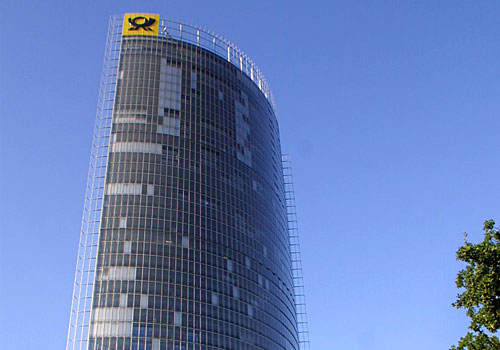
Deutsche Post lashes out at union demands for pay increase and shorter week

Deutsche Post has described the latest pay demands from union Ver.di as “divorced from reality”. After a series of strikes in recent months, Germany’s universal postal service provider said it is now facing demands from the union for a 5.5% pay rise.
Within the fourth round of talks over a new collective bargaining agreement, the union is also demanding a shortening of the working week from 38.5 hours to 36 hours, the company said.
The negotiations involve work contracts for around 130,000 employees at Deutsche Post in Germany. Ver.di has accused Deutsche Post of “filibustering” in the contract talks and over the weekend threatened further strike action.
Deutsche Post said agreeing to such union demands would damage its ability to compete in the postal market.
The company claimed that cutting the working week by 2.5 hours without a corresponding cut in salaries would be equivalent to raising wages by 7%.
Melanie Kreis, the director of corporate human resources and labour at Deutsche Post DHL Group, said: “The demands of Ver.di for maintaining a full wage compensation while reducing the working week — and an additional demand for an increase in staff salaries — goes beyond reality.
“This would represent a wage increase of 12.5%, an additional labour cost increase of about EUR 600m. This is simply not financially viable and would also significantly worsen our existing enormous personnel cost disadvantage compared to our competitors,” Kreis added.
Deutsche Post claimed that it had already proposed a more flexible working week for staff within the first round of union negotiations, based on 36 hours a week, but that the move depended on negotiations over staff salaries.
The company has already been working to cut its labour costs by restructuring its delivery network into a series of regional companies for parcel delivery, which would require regional collective bargaining agreements with Ver.di.
Deutsche Post said these regional companies would have slightly lower wages than its national agreement, but they would be above most of its rivals in the industry.
The company said perpetuating the gap in its wages compared to competitors risked damaging its long-term competitiveness.
Ver.di
Ver.di said on Saturday that it was pulling out of further negotiations on the new collective bargaining agreement.
The union said that talks at the end of last week failed to see Deutsche Post offering any kind of signals on job security for members.
Andrea Kocsis, Ver.di’s deputy chairman, said: “Deutsche Post refuses to come to an agreement over a comprehensive package. It is not prepared to shorten the working week to 36 hours without loss of pay. And it wants in particular to remove any protection for workers against contracting out work.
“With their attitude Deutsche Post has exacerbated this labour dispute. That will not be acceptable to employees.”
The union said strike action could now come on short notice, with few details given in advance about when and where it will happen.













